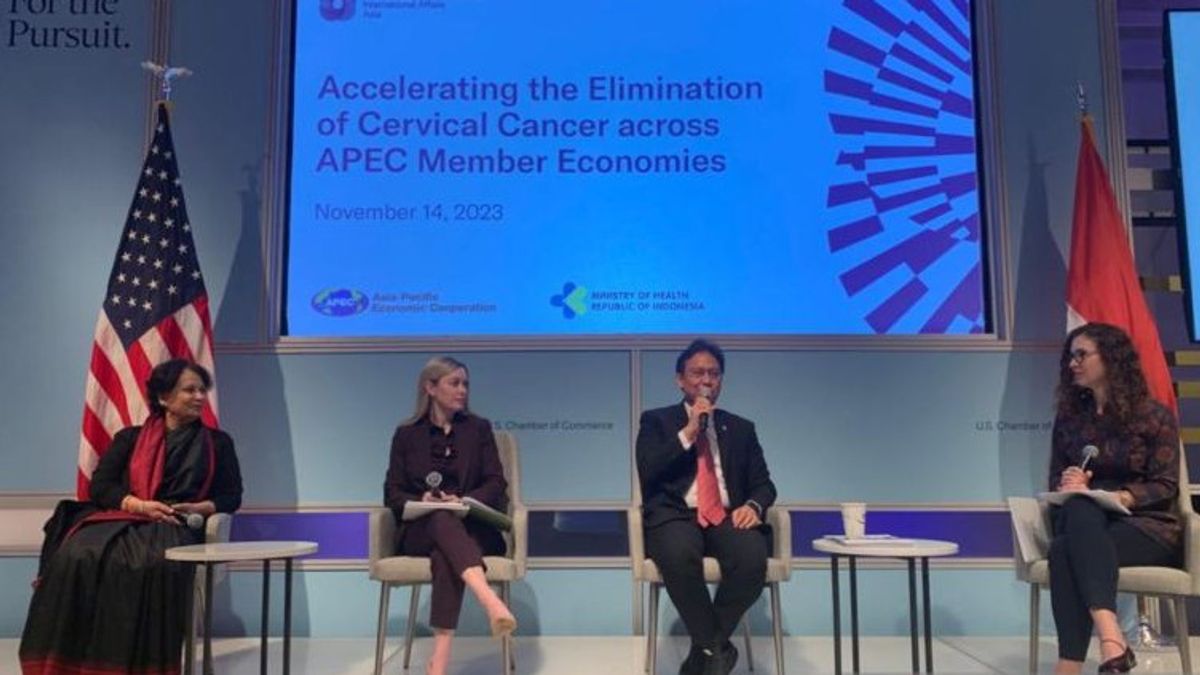JAKARTA - Minister of Health (Menkes) Budi Gunadi Sadikin targets 90 percent of Indonesian children to be immunized humanpapillovirus (HPV) by 2030 to eliminate cervical cancer.
The target is contained in the National Action Plan for the Elimination of Indonesian Cervical Cancer (2023-2030) which was jointly declared between Indonesian President Joko Widodo (Jokowi) and US President Joseph R. Biden, Jr. after a bilateral meeting between the two leaders at the White House on Monday (13/11).
"We must work together in the fight against cervical cancer. Together, we can equip women with the tools they need to ward off this destructive disease," said Minister of Health Budi as quoted by ANTARA, Wednesday, November 15.
The Minister of Health stated that strong collaboration and determination will make cervical cancer preventable, not expensive, and can be overcome by every woman.
Until 2027, he explained, it is targeted that 90 percent of girls aged 15 years will receive HPV immunizations, and by 2028-2030 for boys. In addition, it is also targeted to screen 75 percent of women aged 30-69 years with HPV DNA tests, as well as treatment of 90 percent of women with pre-cancer lesions and invasive cancer by 2030.
"With this scenario, 1.2 million people will be saved from cervical cancer by 2070," he said.
In line with this, President Jokowi stated that this effort is a form of Indonesia's commitment to eradicating cervical cancer in the world.
"It is hoped that with this strategy, Indonesia can achieve APEC's vision, namely that women and daughters of APEC members live healthy and productive lives, and are at low risk of suffering from cancer caused by HPV," he said.
VOIR éGALEMENT:
To note, cervical cancer in Indonesia is at risk of occurring in more than 103 million women over the age of 15, where this disease is the second largest type of cancer in women with 36,000 women diagnosed every year.
In addition, about 70 percent of all women diagnosed are in advanced stages. This resulted in a high death rate from cervical cancer in Indonesia with around 21,000 deaths in 2020.
The National Action Plan for the Elimination of Cervical Cancer is a comprehensive strategy to strengthen the national health system in Indonesia, expand access to more advanced prevention and treatment technologies, and eliminate barriers to cervical cancer interventions rooted in social, financing, culture, social and structural challenges.
The National Action Plan, drawn up based on four pillars of action, includes providing services, education, training, and outreach, the main driver of progress, and governance and policies. These pillars give special priority to fields, strategies, and programs so that Indonesia can jump higher towards the elimination of cervical cancer.
The English, Chinese, Japanese, Arabic, and French versions are automatically generated by the AI. So there may still be inaccuracies in translating, please always see Indonesian as our main language. (system supported by DigitalSiber.id)


















